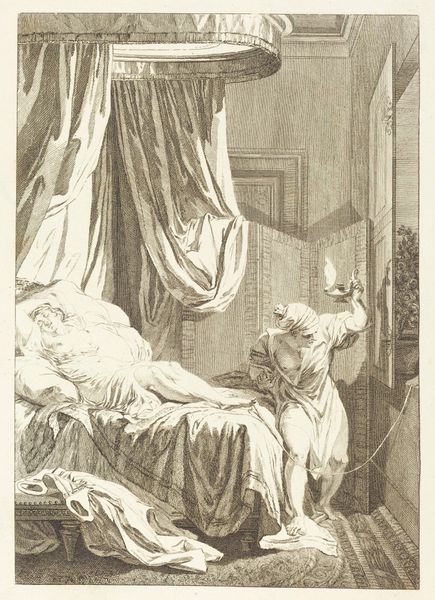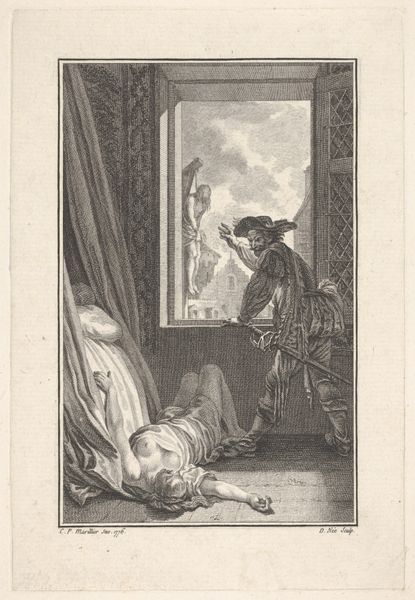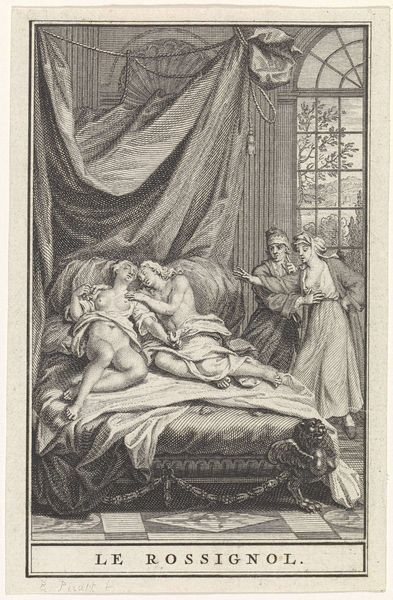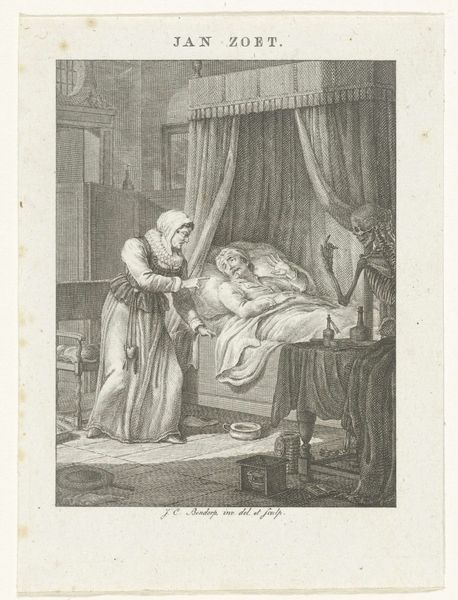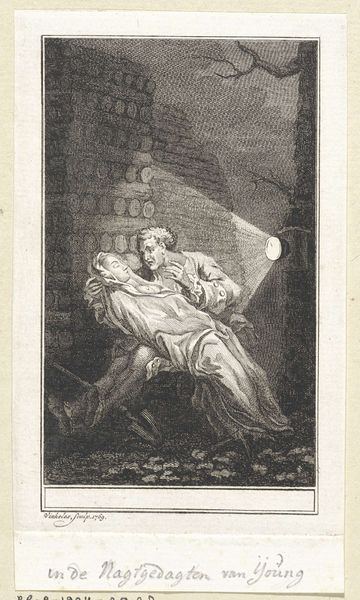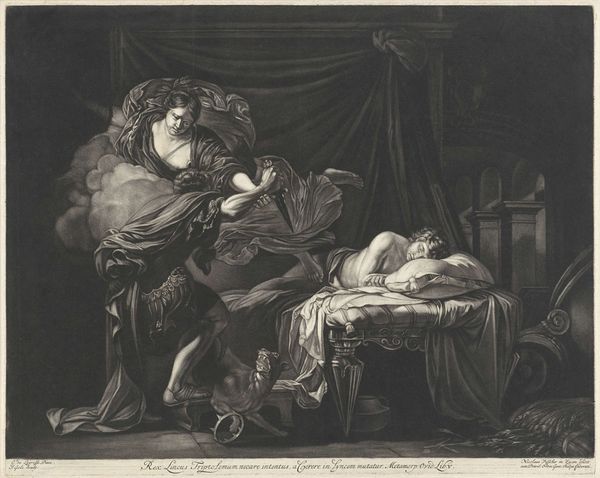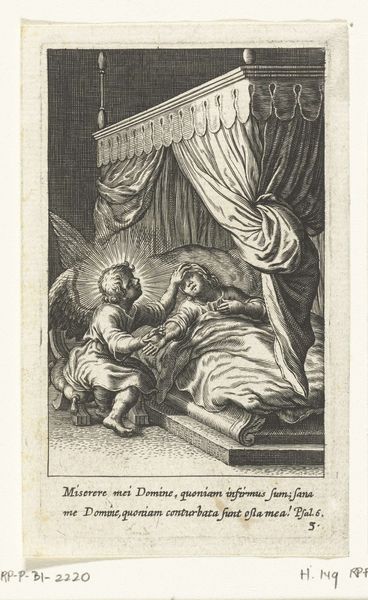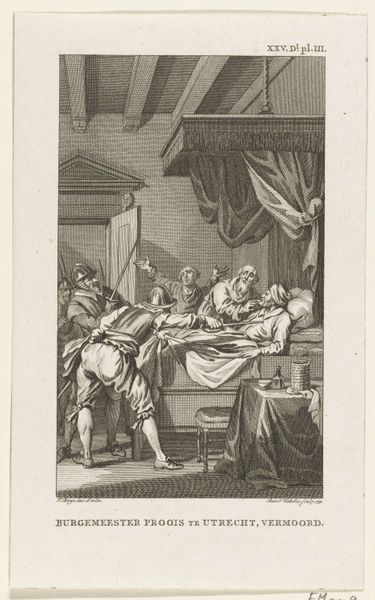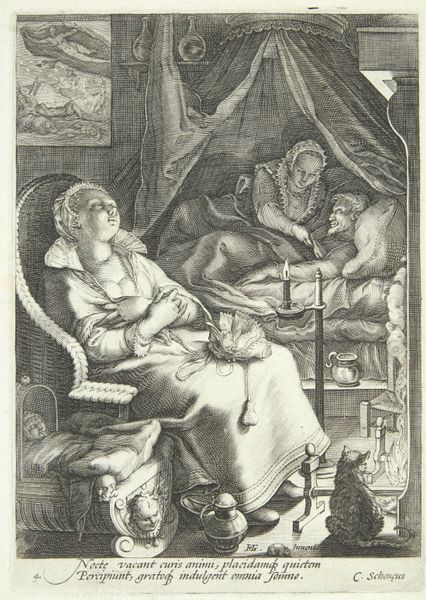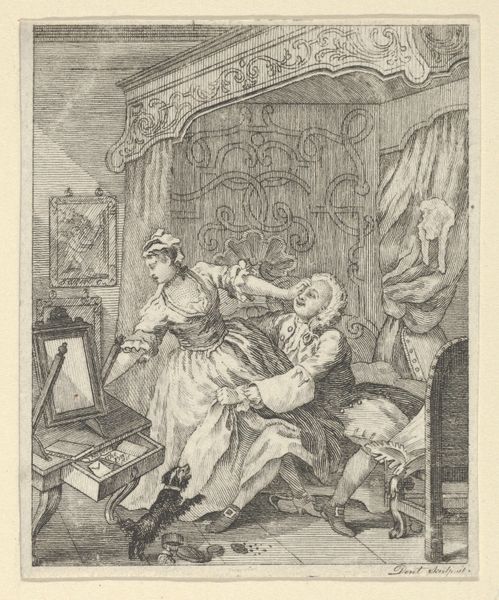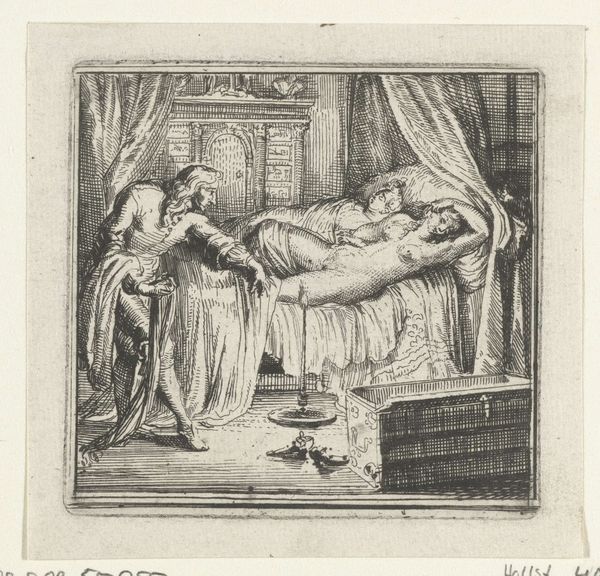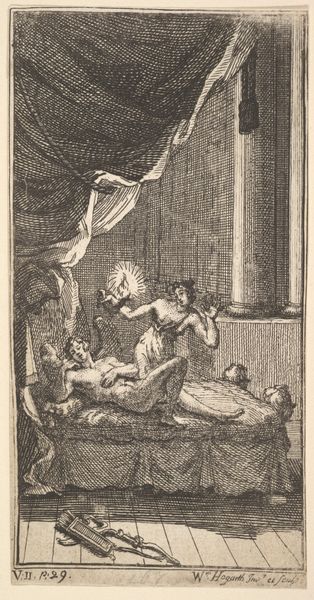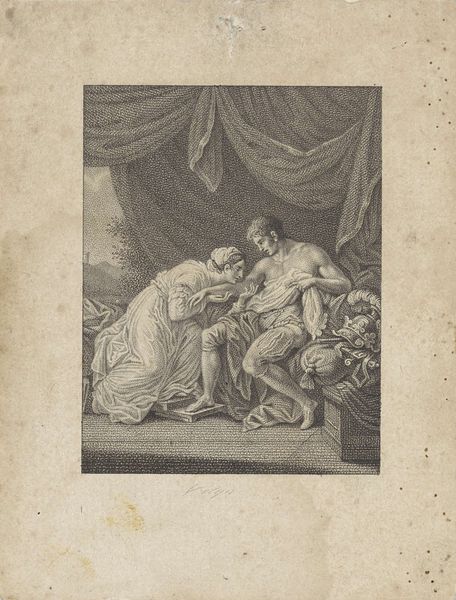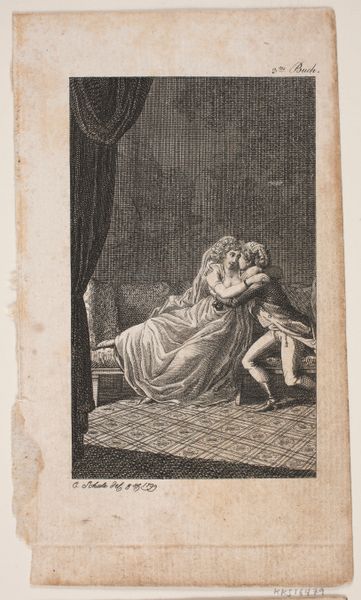
print, engraving
#
narrative-art
#
baroque
# print
#
old engraving style
#
caricature
#
genre-painting
#
history-painting
#
engraving
Dimensions: height 197 mm, width 145 mm
Copyright: Rijks Museum: Open Domain
Curator: This engraving by Jan Punt, dating back to 1743, is titled "Pharaoh of Egypt struck by a plague" and can be found here at the Rijksmuseum. Editor: What a dramatic composition. The density of lines creates a real sense of unease and the sharp contrast seems to highlight the distress in the scene. Curator: Indeed, the strategic use of line work in this Baroque print is noteworthy. Observe the controlled chaos in the drapery contrasted with the rigid lines of the architectural background. Note how light and shadow delineate depth and direct the eye towards the pharaoh. Editor: For me, the drama comes from the iconic imagery. The suffering pharaoh, the concerned figure at his bedside – likely pleading for release from the plague, and the implied presence of death looming over the room are all steeped in symbolic weight. Plagues have always served as powerful visual metaphors for divine retribution. Curator: From a formal perspective, consider how the artist employs linear perspective, converging lines creating depth within the relatively shallow pictorial space of a print. Also, observe the engraver’s use of hatching and cross-hatching to suggest tonal gradations. It’s quite effective given the constraints of the medium. Editor: It's fascinating how this scene resonates beyond its immediate context. Illness as punishment is a powerful, recurring theme in many cultures and its depiction evokes both fear and pity. I’m also interested in that the pharaoh doesn't hold absolute power when facing unseen forces, as this is represented through visual shorthands we have recognized for centuries. Curator: Precisely! By dissecting the visual language—line, composition, light, shadow—we are better positioned to unlock meaning, understanding both the conscious decisions made by Punt as an artist, and the effects that were achieved. Editor: The beauty of exploring these historical works, is witnessing the lasting power of symbols. Sickness still instills fear; those human responses remain consistent. It certainly prompts reflections on history, mortality, and our relationship with the divine, wouldn’t you agree?
Comments
No comments
Be the first to comment and join the conversation on the ultimate creative platform.
